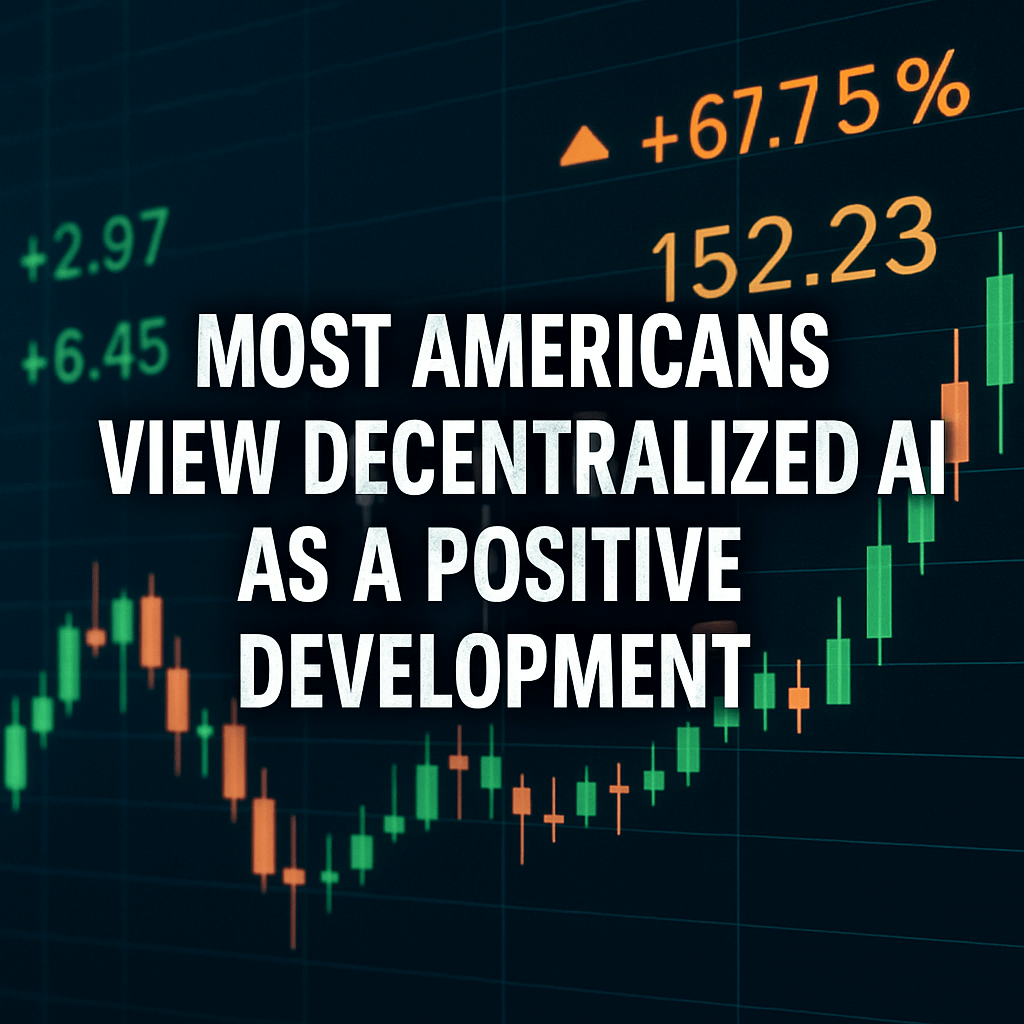Most Americans View Decentralized AI as a Positive Development

A new Harris Poll commissioned by Digital Currency Group (DCG) reveals that 77% of surveyed Americans believe decentralized artificial intelligence (AI) offers greater benefits to society than its centralized counterparts. This sentiment underscores growing public interest in privacy, data sovereignty and transparent governance models enabled by distributed ledger technologies.
Key Findings from the Poll
- 77% of respondents favor decentralized AI for societal benefit.
- 65% express concerns over data privacy in centralized AI platforms.
- 58% would trust decentralized AI more for critical applications like healthcare diagnostics.
- 52% are willing to pay a premium for AI services built on open, community-driven protocols.
Technical Underpinnings of Decentralized AI
Decentralized AI leverages multiple emerging technologies to address the shortcomings of centralized models. Below are two core components:
Federated Learning and Data Privacy
Instead of aggregating raw data in one location, federated learning distributes model training across nodes. Each node trains a local copy of the AI model on private datasets, sharing only encrypted parameter updates via secure multi-party computation (MPC). This architecture reduces risk of mass data breaches and preserves user confidentiality in sectors such as finance and healthcare.
Blockchain Integration and Consensus
Blockchain or directed acyclic graph (DAG) networks provide an immutable audit trail for model contributions and updates. Smart contracts automate incentive distribution—rewarding data providers, compute contributors and model auditors based on pre-defined metrics like accuracy and lower latency. Consensus algorithms—from Proof of Stake (PoS) to Practical Byzantine Fault Tolerance (PBFT)—ensure trustless coordination without a single point of failure.
“Decentralized AI frameworks combine cryptographic guarantees with economic incentives to align stakeholder interests,” says Dr. Alice Chen, Senior Research Scientist at the MIT Center for Blockchain Technologies.
Market and Regulatory Implications
Emerging Platforms and Investments
Several projects have secured significant venture funding in 2024:
- SingularityNET: Raised $25 million for its multi-agent AI marketplace.
- Fetch.ai: Expanded its autonomous agent network to 100,000 nodes.
- Ocean Protocol: Launched new data tokenization features to enable secure data sharing.
Policy Landscape
Regulators are scrambling to adapt to this shift. The EU AI Act includes specific provisions for transparency in AI governance, while U.S. lawmakers are drafting the AI Bill of Rights to safeguard user data and algorithmic fairness. Experts caution that over-regulation could stifle innovation of open-source projects.
Challenges and Future Prospects
- Scalability: High throughput demands for model training can strain decentralized networks.
- Interoperability: Standardization of model formats and APIs remains an open issue.
- Security Risks: Sybil attacks and data poisoning require robust stake-slashing mechanisms.
- Governance: On-chain voting and quadratic funding need careful design to prevent plutocracy.
Looking ahead, next-generation protocols plan to integrate zero-knowledge proofs (ZKPs) for enhanced privacy, and layer-2 scaling solutions to accelerate consensus without sacrificing decentralization.
Conclusion
The DCG-sponsored poll highlights a clear public mandate: Americans want AI systems that balance innovation with transparency and data rights. As decentralized architectures mature, we expect to see expanded adoption across industries—from decentralized finance (DeFi) to supply chain management—further reshaping the AI landscape.